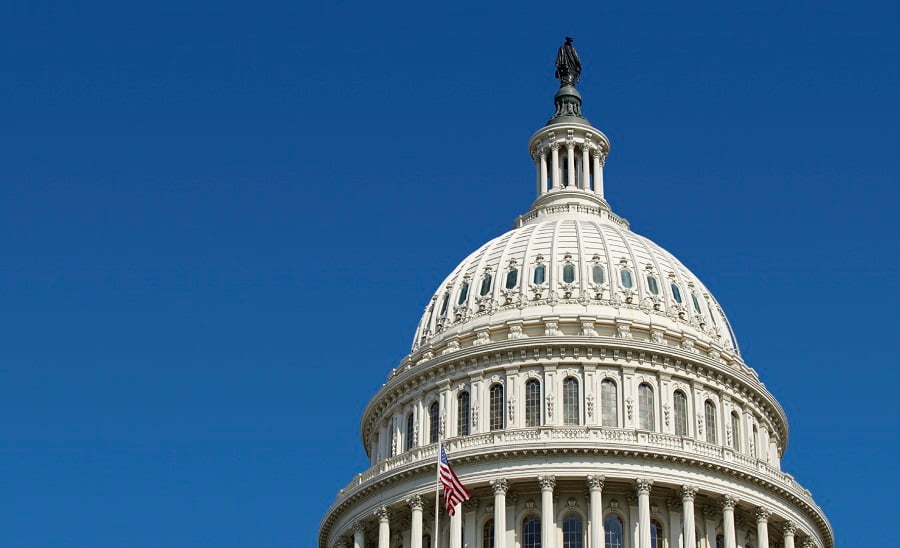

A House hearing Wednesday on ESG made two things clear: Republicans and Democrats have entirely different ideas of what it means, and there's no end in sight to the increasingly political division over the topic.
Republicans characterized the consideration of environmental, social and governance factors by fiduciaries as imposing morality on investors and called it a threat to economic prosperity, democracy and national security. Democrats articulated their stance that ESG represents data that are necessary to fully inform investment risk and opportunity.
Republicans painted a picture of global corporations working to shape societal values at a cost to shareholders, numerous times pointing to BlackRock and Silicon Valley Bank as examples. Democrats noted a long-term performance edge that ESG factors can provide, citing its potential to avoid investments with risky off-balance-sheet factors — ranging from Purdue Pharma and Norfolk Southern to Volkswagen.
Tension over ESG has boiled over amid the broader culture wars but also as energy stocks have recently outperformed the market and numerous states have moved to tamp down on the use of ESG considerations where public money is involved.
The hearing before the House Committee on Oversight and Accountability, which spanned 3½ hours, gave representatives an opportunity to question two ESG witnesses invited by Republicans — Utah Attorney General Sean Reyes and Alabama Attorney General Steve Marshall — and the pro-ESG witness invited by Democrats, Illinois State Treasurer Michael Frerichs.
The hearing was labeled as “Part 1” in an apparent series. A follow up session has not yet appeared on the committee’s calendar.
Questions from Republicans ranged from how ESG factors might negatively affect returns to whether big asset managers and proxy advisors are pressuring businesses to make decisions that favor a liberal agenda but ultimately hurt their bottom lines. Rep. Glenn Grothman, R-Wisc., asked whether ESG is being used to discriminate against white men. Rep. Lauren Boebert, R-Colo., criticized the proxy-voting powers of asset managers, calling BlackRock “a primarily left-wing activist fund that uses its status as a fiduciary for several investment funds to coerce companies into introducing these ESG politics into their retirement account savings.”
Meanwhile, Rep. Melanie Stansbury, D-N.M., said she was disappointed “to see the use of this committee’s precious time to air yet another dark-money-funded, conspiracy-laden attack on American freedom.
“But I’m surprised to see that in this case it’s an attack on the market itself,” Stansbury said. “It’s amazing to me to see the attacks we’ve seen on American freedom by the majority — attacks on our bodies, banning books, and now we’re talking about banning the way that businesses are able to invest their own capital.”
She pointed to a recent survey from Penn State’s Center for the Business of Sustainability showing that more Republican than Democrat voters said they were opposed to bans on ESG use, at 70% versus 57%.
The two attorney general witnesses said that ESG policies could violate their state laws.
“I am particularly concerned about the attempt to add racial quotas into company hiring practices and also to require insurance companies to consider race in underwriting, as these proposals appear to violate state law including Utah’s laws,” Reyes said in prepared remarks.
Marshall pointed to ESG considerations by asset managers as potential violations of the anti-trust Sherman Act.
Conversely, Frerichs cited the use of ESG as crucial in performing his job as a fiduciary. The state avoided a big investment in Purdue Pharma by recognizing the company’s practice of pushing highly addictive painkillers, he said, which helped the pension system avoid losses upon the company’s bankruptcy that followed federal opioid litigation.
Such risks were not obvious on the balance sheet, he said.
“They made money hand over fist,” Frerichs said. “It’s a great business model to sell a highly addictive drug to people.”
Similarly, he said, data about Norfolk Southern laying off much of its staff while adding cars to its trains would have been helpful in helping investors avoid the risks now associated with the derailment in East Palestine, Ohio.
ESG considerations, while not a new phenomenon, are more relevant in today’s market than in the past, as the nature of value in businesses has changed, Frerichs said. Fifty years ago, most of the value of companies were in tangible assets, but today about 80% of the value of brands in the S&P 500 is intellectual property, he said.
“We still do traditional financial analysis, but we add on another layer,” he said.
Rep. Shontel Brown, D-Ohio, noted that the inclusion of people of all backgrounds, including Black Americans, on corporate boards is necessary as “diverse voices at the table make companies stronger.” Only about 3% of all U.S. businesses are Black-owned, yet more than 12% of the population is Black, she said.
Seemingly responding to an earlier question about discrimination against white men, Frerichs said, “There are still plenty of white men serving on corporate boards.”
Rep. Katie Porter, D-Calif., said that political views about companies go both ways.
“Plenty of conservatives have dumped their stock in Bud or Disney because they think they are too ‘woke,’” Porter said.
“Capitalism is a lot like democracy. You get choices,” she said. “A lot of investors want to know more than just dollar-and-cent disclosure when they’re making a decision to buy.”

Relationships are key to our business but advisors are often slow to engage in specific activities designed to foster them.

Whichever path you go down, act now while you're still in control.

Pro-bitcoin professionals, however, say the cryptocurrency has ushered in change.

“LPL has evolved significantly over the last decade and still wants to scale up,” says one industry executive.

Survey findings from the Nationwide Retirement Institute offers pearls of planning wisdom from 60- to 65-year-olds, as well as insights into concerns.
Streamline your outreach with Aidentified's AI-driven solutions
This season’s market volatility: Positioning for rate relief, income growth and the AI rebound
